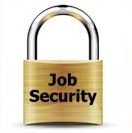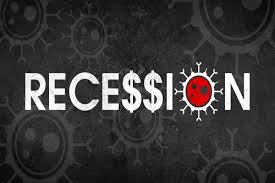 June 2021
June 2021
Our economy had been growing without disruption far longer than anticipated. COVID was the tipping point causing what has been a deeper recession.

Throughout the pandemic condominium communities have been resilient. None have gone bankrupt, closed down or terminated employees. Operations continue with only nominal changes in deference to COVID.
Condo fees are stable so there should not be any revenue shortfall. People need somewhere to live and owners have invested a lot to own their homes. The cost of failing to pay condo fees is high and can result in a forced sale of the home to pay monies due. When the process is properly managed, owners have every motivation to pay their condo fees before other outstanding bills or make discretionary expenditures. This protects remaining owners from financing another’s financial obligations.
Hidden from view of residents, condominium managers and boards have been working frantically to deal with pandemic-related changes to their operations and systems.
Fees, Deferral Requests and Failure to Pay
 Individuals financially impacted by the pandemic may request fee abatements or deferrals. Condo boards and management lack authority to grant them and forcing added financial obligations on other owners should monies not be paid or a cash shortage occur.
Individuals financially impacted by the pandemic may request fee abatements or deferrals. Condo boards and management lack authority to grant them and forcing added financial obligations on other owners should monies not be paid or a cash shortage occur.
Communities in need of funds may find more opposition to fee increases or special assessments that some may be unable to pay. Loans may be increasingly important for communities in immediate need of funds.
The administrative and legal burden of dealing with a growing number failing to pay condo fees can be a problem. There will be more conversations, letters and legal notices to contend with in addition to other responsibilities.
Vendor Arrangements
Condominium corporations have a legal obligation to maintain common areas. Areas in disrepair must be repaired. Vendors serving condominium buildings have been insulated from economic effects of the pandemic by this obligation.
Fewer vendors are available to service condominium and other high-rise communities as some discontinue operations. Management is spending more time sourcing vendors from those available. They may be renegotiating contracts, deadlines and pricing impacted by the pandemic. Vendors that remain open for business are likely more stable, reliable, experienced and reputable.
Management must work harder
More people at home during the day creates higher demand on all building systems from elevators to electricity, plumbing and other internal systems which break down more frequently and require more maintenance. More cooking at home results in more fires. Water leaks increase from more heavily used dish washers, clothes washers, showers, toilets and faucets. There is more waste to manage and more cleaning. The volume of service and maintenance requests grow.
Where management offices are inaccessible to residents because of pandemic restrictions, there is greater reliance on telephone, e-mail and other communication systems. Failure of management to respond – and lack of an effective system for managing electronic communications and responding to issues – creates distrust among residents and a perception that management is incompetent.
Each change in government-imposed pandemic restrictions requires additional work to ensure compliance and communicate with residents.
There is a need for better preparation in adapting to changing circumstances.
Boards must work harder
Boards are spending more time addressing normal issues in their community along with pandemic-related obligations. Budgets must be expanded, or savings found, to pay for additional work, maintenance and repairs that result from more people at home during daytime hours.
There is a need for better preparation to deal with changing circumstances.
 There is no disagreement that more people at home all day creates more work for boards and management. Heavier use of common areas, heating or air conditioning, and water creates added strain on building systems which require more maintenance. How boards and management adapt to these changing circumstances will impact on how well high-rise buildings are maintained, stability of condo fees, and need to obtain additional funds through special assessments, loans or higher condo fees.
There is no disagreement that more people at home all day creates more work for boards and management. Heavier use of common areas, heating or air conditioning, and water creates added strain on building systems which require more maintenance. How boards and management adapt to these changing circumstances will impact on how well high-rise buildings are maintained, stability of condo fees, and need to obtain additional funds through special assessments, loans or higher condo fees.







